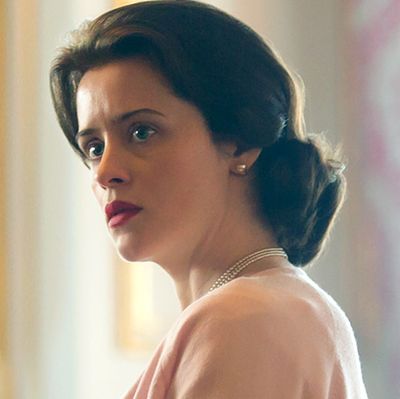
The internet is full of spoilers for all sorts of TV shows, but there’s only one that’s seen its entire run spoiled years in advance: The Crown, which has a whole webpage devoted to outlining every major event of the series’ planned six-season run. Claire Foy has already revealed that the second season of the Netflix drama will run roughly from 1956 to 1964, a period that was chock-full of changes for the monarchy, as well as for Britain itself. (According to poet Philip Larkin, the nation discovered what sex was near the end of that span, which will surely make for great television.) With The Crown set to return for its second season December 8, let Vulture’s official history explainer run down the major events of the time period. If you need a refresher, the trailer for season two is below:
The Suez Crisis
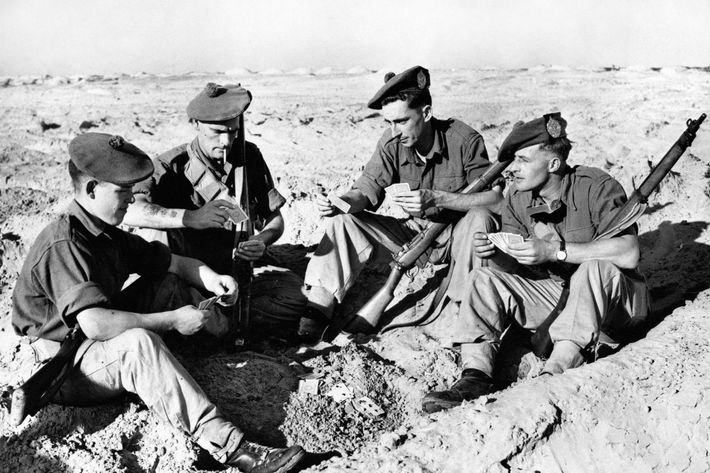
Per showrunner Peter Morgan, the second season will kick off with the Suez Crisis, which was foreshadowed at the end of season one. “Suez feels like a changing point for the country,” he told THR. “Britain was never the same again after Suez.” So, what is the Suez Crisis? The easiest explanation is that if Dunkirk is synonymous with the plucky British home front of World War II, Suez is synonymous with the nation’s postwar decline.
After Egyptian colonel Gamal Abdel Nasser overthrew his country’s monarchy and installed himself as president, he shocked the world by nationalizing the Suez Canal, through which much of the oil that made its way to Britain passed. Prime Minister Anthony Eden (played by Jeremy Northam in The Crown) absolutely hated Nasser, and alongside France and Israel, came up with a secret plan to get the canal back. It was, to be honest, a terrible plan: The Israelis invaded the Sinai Peninsula, at which point the British and French sent troops into Egypt pretending to be totally neutral peacekeepers — a pretense that was believed by approximately no one, especially once the RAF started bombing. The timing was equally terrible: The Soviets had just invaded Hungary, and the West couldn’t very well complain about a superpower interfering with a smaller nation when two of their own were doing the same thing. (This was a time when people in power actually worried about looking like hypocrites.)
Thanks to massive outcry from world leaders like Indian prime minister Jawaharlal Nehru and diplomatic and economic pressure from President Eisenhower, Britain agreed to a ceasefire. It was total disaster on every conceivable level, and it only lasted about a week. The whole ordeal is widely regarded as the moment Europe ceded control of the international stage to the United States.
Eden eventually resigned in disgrace, and thanks to a gap in the rules of the Conservative Party, the queen was forced to help choose the men who would choose the new prime minister. If you’re wondering, she was said to have been against the idea of invading Egypt in the first place, but it’s not like she could do anything about it.
Rumors of Prince Philip’s Infidelity
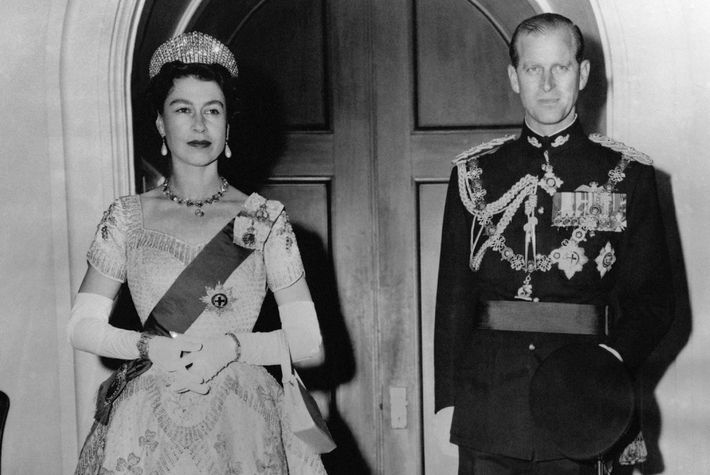
The trailer for The Crown’s second season hints that Prince Philip’s love life will be a key part of the new episodes, and that’s not just the show trying to sex things up: Philip’s fidelity or lack thereof became a major issue in the late ’50s. Philip’s attendance at the Thursday Club — a lunch gathering of rich guys who either sat around and listened to music, or threw full-blown orgies, depending on who you ask — had been the subject of controversy in royal circles since his marriage, and he had long been dogged by a story that he’d had an affair with actress Pat Kirkwood while the queen was pregnant. In 1957, the Baltimore Sun reported that Philip had a mistress tucked away in London, forcing Buckingham Palace to put out a rare statement on the matter, saying, “It is quite untrue that there is any rift between the queen and the Duke.”
In the decades since, rumors have continued to swirl that Prince Philip had cheated on the queen with actresses, socialites, and even their mutual cousin, Princess Alexandra. The Palace eventually admitted that the Duke of Edinburgh enjoys the company of the opposite sex, but they and he have always denied he was ever unfaithful; as Philip told one reporter, “How could I? I’ve had a detective in my company, night and day, since 1947.” Furthermore, every woman who’s been linked to the Duke has maintained that she was merely his platonic friend. Though, to paraphrase a contemporary, they would say that, wouldn’t they?
Princess Margaret’s New Man
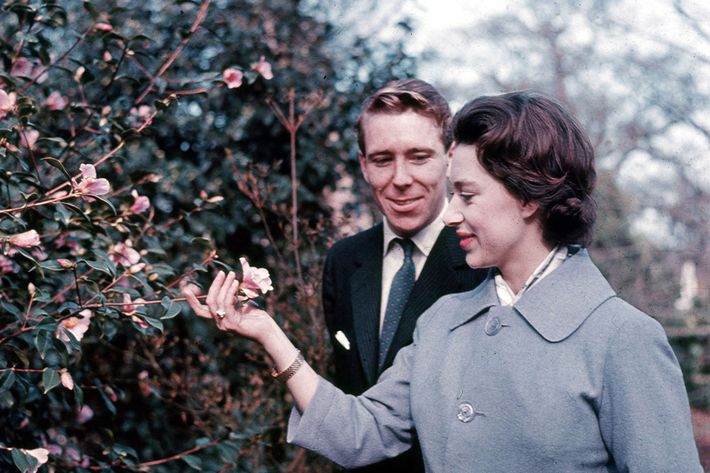
Group Captain Townsend may be out of the picture, but Vanessa Kirby will still get another steamy romantic plotline this season when Matthew Goode shows up as Marg’s second great love, the photographer Antony Armstrong-Jones. (They fell in love after she sat for a portrait, naturally.) As a suitor, Armstrong-Jones had almost everything: looks, charm, a good education, artistic talent, and most importantly for the Church of England, he had never been previously married. (He had secretly fathered a child out of wedlock, but that story wouldn’t come out for many years.)
The couple would wed in 1960, making Armstrong-Jones the first commoner to marry into the royal family in centuries, and they had many months of connubial bliss as the toast of London in the early ’60s. But it was not to last, as the relationship turned out to have several fundamental issues, including but not limited to both parties’ flagrant infidelity, his rumored bisexuality, and his habit of writing lists of everything he hated about his wife and leaving them for her to find. Astoundingly, they nevertheless stayed married until 1978.
Independence Movements in the Colonies
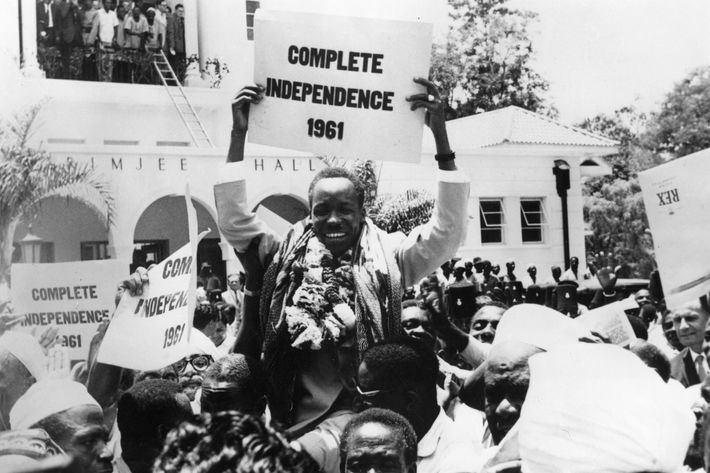
The Crown often has a difficult time covering subjects without a direct connection to Queen Elizabeth, but according to the trailer for season two, they’ll at least try to cover the breakup of the British Empire in the late ‘50s and early ‘60s. Thanks to an unwillingness to fund an overseas empire, increasing nationalist and democratic sentiments in the colonies, and pressure from America to open them up to trade, Britain granted independence to dozens of former colonies — including Jamaica, Nigeria, Kenya, and Tanzania — during the period. Official independence was often symbolized in incredibly stage-managed ceremonies that took place at the stroke of midnight, so maybe that will be The Crown’s way in.
John F. Kennedy’s Visit
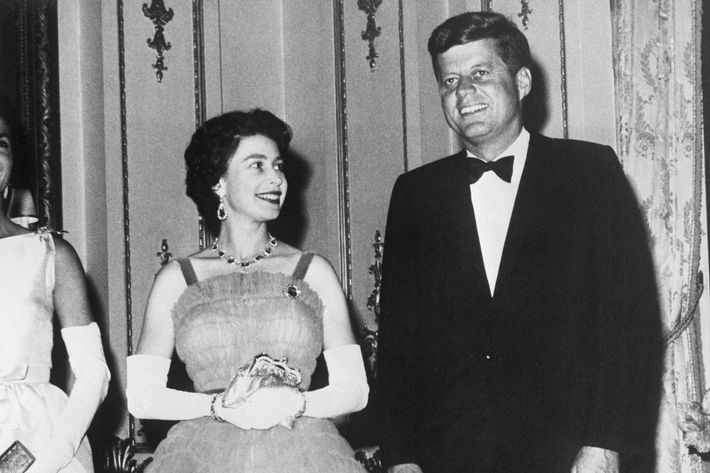
Michael C. Hall will also join the cast of The Crown this year, playing John F. Kennedy. (Caspar Phillipson must have been busy.) JFK and Jackie only met the queen once, during a visit to the U.K. in 1961. He gave her a signed photograph of himself, which might sound weird to you and me, but was apparently the correct thing to do in that circumstance since the meeting was only a dinner, not an official state meeting that would have called for something more elaborate. (The difference seems rather esoteric, but I’m sure The Crown will go into all the protocol stuff.) Sadly, the official state meeting was put off until later in JFK’s presidency and ended up never happening, for reasons I’m sure I don’t have to explain to you. For The Crown’s purposes, there was also some drama about whether or not Jackie’s sister would also come to dinner — she’d married a Polish prince, but both of them had been divorced and we all know how the queen felt about that — though this is a show that once got an entire episode out of a foggy day, so I’m sure they’ll be able to spin a spat about seating arrangements into solid gold.
The Profumo Affair
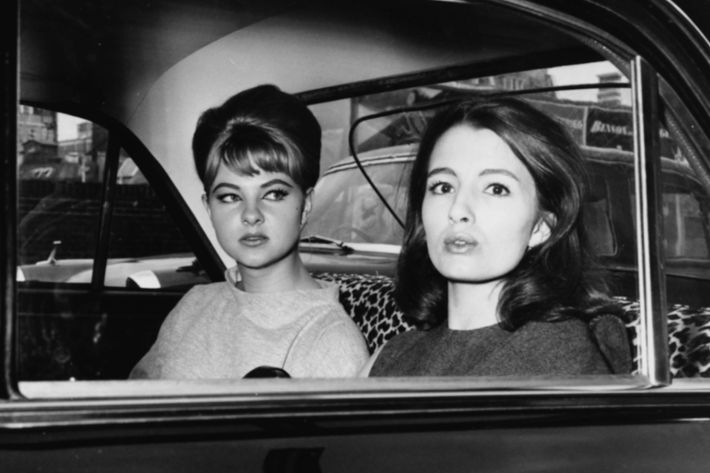
Remember that line in Billy Joel’s “We Didn’t Start the Fire,” about “British politician sex”? Well, these are the British politicians who had sex! The name of the scandal comes from Minister for War John Profumo, who was revealed to have had an affair with a model named Christine Keeler. As it happens, Keeler was also sleeping with Soviet “naval attaché” Yevgeny Ivanov, thus turning a sex scandal into a national-security scandal. Both affairs were facilitated by Stephen Ward, a “society osteopath” who threw parties where Britain’s upper crust mingled with young women. Besides being Keeler’s Svengali/landlord, Ward also happened to be an MI5 asset; he had set up Keeler and Ivanov as part of the agency’s plan to get the Russian to defect. (Profumo’s affair with Keeler was not part of the plan.)
The love triangle didn’t become public until 1963 — long after both affairs had ended — in the wake of an incident where one of Keeler’s ex-boyfriends tried to find her at Ward’s home fired a gun at the door. The boyfriend was arrested and things spiraled from there, thanks to Keeler’s loose tongue. Alongside another Ward protege, Mandy Rice-Davies (who claimed to have slept with Lord Astor), Keeler soon became the most notorious woman in England. For months, the British tabloids were filled with tales of upper-class perversions, and it’s not a stretch to say that the combination of explicit sex talk and the embarrassment of the old Establishment is what truly kicked off the Swinging Sixties in Britain. Profumo tried denying the affair, then resigned once the truth came out. Prime Minister Harold Macmillan came under heavy criticism for seemingly having attempted to sweep the whole thing under the rug; he resigned later in the year for health reasons, though the Conservatives would lose the next election anyway.
The highest price was paid by Ward, who was abandoned by his old friends and scapegoated for the whole affair. He was charged with living off immoral earnings and subjected to a trial that is now generally considered a stitch up. Before he could be found guilty, he overdosed on sleeping pills and died a few days later. In September 1963, a government inquiry found that no classified information had been leaked during the affair.
Beatlemania
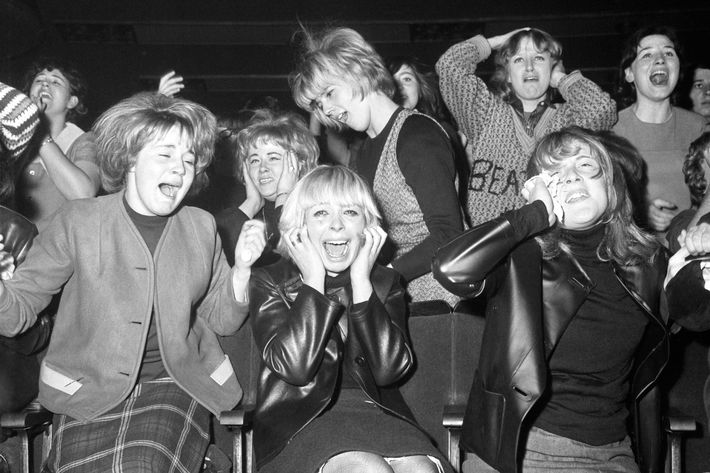
Speaking of the Swinging Sixties, we can’t get to 1964 without talking about Beatlemania, the first cases of which first popped up in Britain in the autumn of the previous year. Will The Crown’s music supervisor spring for a Beatles tune? Mad Men did it, and if there’s one show The Crown wants to be, it’s Mad Men. Unfortunately, the Fab Four didn’t meet the queen until 1965, which means we’ll miss out on what could have been a delightful episode of Claire Foy interacting with a Ringo lookalike.





